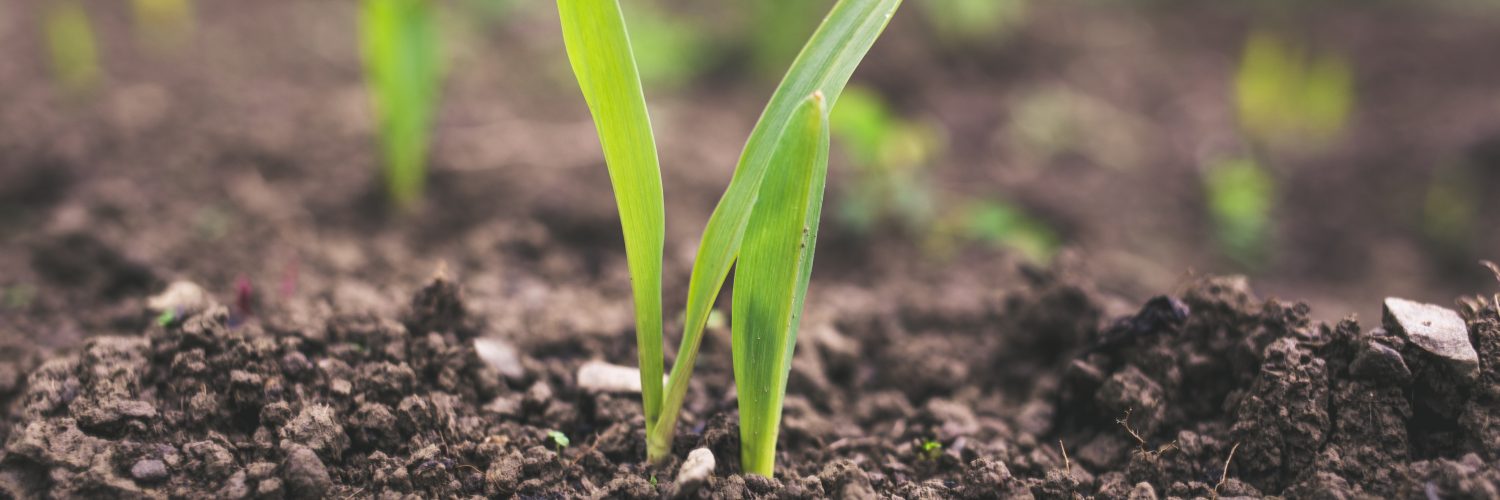Mesa Community College and Arizona State University have partnered with the United States Department of Agriculture-Agricultural Research Service (USDA-ARS) Arid Lands Agricultural Research Center (ALARC) to create new opportunities for agriculture education in the Valley.
The collaboration, a result of a three-year, $682,313 grant, created the urban-agriculture nexus project, a course of study between ASU’s Ira A. Fulton Schools of Engineering and the MCC Sustainable Agriculture program.
“This is a fantastic opportunity for MCC students to work with ASU undergrads and grad students to gain hands-on field and lab research experiences in agriculture,” said Peter Conden, director of MCC’s Sustainable Agriculture program. “This project incorporates multiple research methods, experiential learning, internships and community engagement — all within the course of one calendar year. Ideally, participation will spark students’ interest in pursuing agricultural careers and provide a clear path to associate’s and bachelor’s degrees.”
Conden also runs a five-acre urban farm on MCC’s campus, two acres of which function as organic crop land.
Conden said ASU contacted him to be part of the urban-agriculture nexus project with the intent of expanding the university’s research and teaching offerings in agriculture.
“As part of this grant, we’re developing an agriculture research techniques course that is going to be cross-linked to ASU and MCC,” he said. “MCC students can take the same course at MCC that students are taking at ASU.”
The first undergraduate course offered as part of the project will begin in the spring 2020 semester.
Urban agriculture is the practice of farming or gardening in urban areas to cultivate, process and distribute food. According to Conden, urban farmers must get creative about how they use space and water, a scarce resource in the Arizona desert.
“We’re teaching students to plant high-value, high-intensity crops, so that you’re not just growing acres and acres of lettuce, but you’ll intersperse different plantings with each other to help the plants grow better, to maximize your land,” Conden said. “And, of course, we focus on business skills, too, so that they can be profitable. The whole sustainability thing — the socially sustainable, environmentally sustainable and then economically sustainable, too.”
For the urban-agriculture nexus project, community college students will conduct research alongside university students to take them further along the higher education pathway and, hopefully, spark interest in research-oriented careers, Conden said.
ASU has a number of programs that focus on agriculture and food systems but lacks a centralized department or school specifically for agriculture, said Dr. Rebecca Muenich, assistant professor at ASU’s School of Sustainable Engineering and the Built Environment and principal investigator for the project.
The urban-agriculture nexus project is a way to facilitate new opportunities, she said.
“We also hope that there can be some ag-related degree programs or certificates developed at ASU,” Muenich said. “It just so happens that this is kind of a ripe time for this activity and for this grant.”
Part of that is ASU’s new Swette Center for Sustainable Food Systems, which recently started a degree program for students in the School of Sustainability to pursue food systems research, Muenich said.
“There’s definitely a lot of interest and movement in this space that I think will help continue this long-term,” she said. “We also hope that more Mesa Community College students, and even other community college students who might be interested in agriculture or agricultural-related careers, think about ASU as an opportunity to pursue those careers, whether they study something specific to agriculture or study something [else] and understand how that can be used in that important industry.”
Students in the urban agriculture nexus project will begin by working with ALARC, in the city of Maricopa, to investigate the effects of reclaimed water on crop production and test reclaimed water for pathogens, antibiotic-resistant bugs and even antibiotics, Conden said.
“They’re just making sure that the reclaimed water that people are starting to use on crops is actually safe to use,” he said. “Some of the other things that we want to investigate using MCC’s land are the effect on composts in agricultural soils and also the safety of composts for — once again — for making sure that they don’t contain pathogens that haven’t been killed during the composting process.”
Those two projects are just the tip of the iceberg, according to Conden and Muenich.
“They’re going to be able to meet people who are working in the agriculture industry, maybe USDA scientists who are doing research… in that industry, hear from ASU professors or MCC faculty who are also doing something related to agriculture, and then just learn in general about — what does Arizona agriculture look like?” Muenich said. “What are some of the challenges faced? Where are some of the opportunities for innovation?”
At the end of the class, MCC and ASU students will form teams and develop agricultural research projects, she said.
“Through this course, they’ll have developed a research plan related to agriculture,” she said. “Then, we have some internships available for the summer following the spring course, where students can actually carry out their work that they spent time developing in groups, and it’s an internship with USDA and Maricopa over summer to actually do their projects and implement them and get that hands-on experience.”
Internship opportunities make up the first piece of the grant. Part two is new funding for ASU master’s students — co-advised by the USDA and ASU — to encourage student engagement with agriculture, Muenich said.
That will hopefully “facilitate potential future research collaborations with the USDA,” she said.
“As the master’s students work on their project, we can identify new research questions, and we can keep furthering those collaborations,” she said. “The third piece of the grant is this kind of broader stakeholder engagement, and we’re doing that in a couple of ways.”
First, ASU has a stakeholder advisory board that helps the university determine the most important issues facing Arizona agriculture today, which students may work on in the future. Board members will visit classes, mentor student teams and keep the project focused on its ultimate goals, Muenich said.
Second, ASU will be holding a kickoff event in October called “Emerging Opportunities in Agriculture” to expose people to the different aspects of agriculture outside of traditional farming.
“There’s the high-tech end of it; there’s the processing end of it,” Conden said. “There was a guy from Shamrock Farms — I was in a meeting one time with high school students, and he said, ‘Look, we don’t need farmers. We need people who can run and troubleshoot and fix these high-tech processing machines.’”
The face of modern agriculture is a new one, and students must either be multifaceted or pick a niche, he said.
“We’re trying to expose people to the different careers that are available in agriculture, so as not to scare people away from ‘just being a farmer,’” Conden said. “Some of these farmers are brilliant engineers.”
At the end of the project, there will be another event to sum up the work students have done and hear from people working in agriculture or government.
The event will help students “find out what career opportunities there are, see what’s coming next on the horizon for agriculture, how they can get involved now and start thinking about how what they do now might apply in the future,” Muenich said.
The growth of urban agriculture is primarily a response to hunger and food inequities in urban areas, Conden said. The “bigger picture” of the urban-agriculture nexus project is to solve some of those problems not only locally but globally as well.
“That’s a big, big call,” he said. “Our little part of that could be learning to farm more efficiently in hitherto undiscovered crop land, like abandoned lots.”
But, for now, the most important thing is starting a conversation about the future of food production, he said.
“We happen to be looking more towards cities and looking more towards the future, when water shortages are going to surely be coming down the pike,” Conden said. “We’ll be set; we’ll already be in a place to farm much more efficiently. It’s awesome that I can be a part of it.”















Add comment